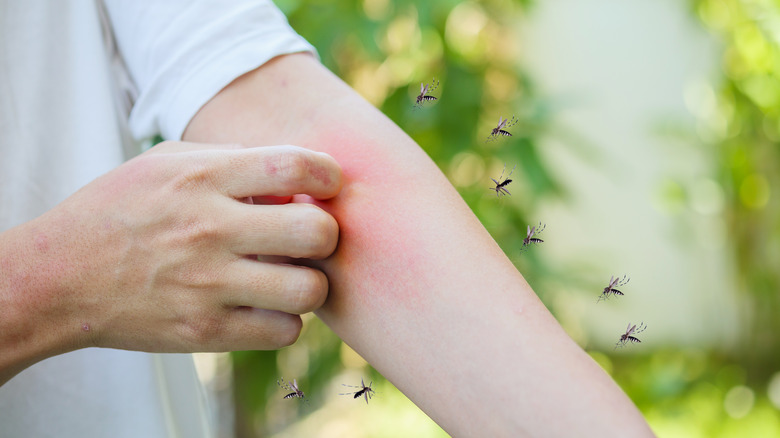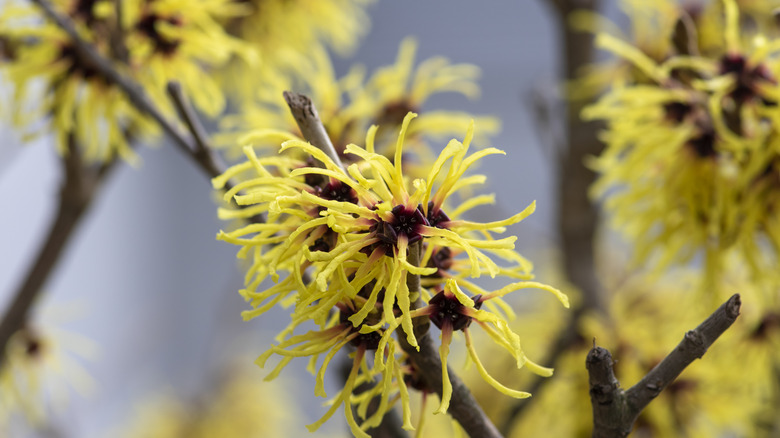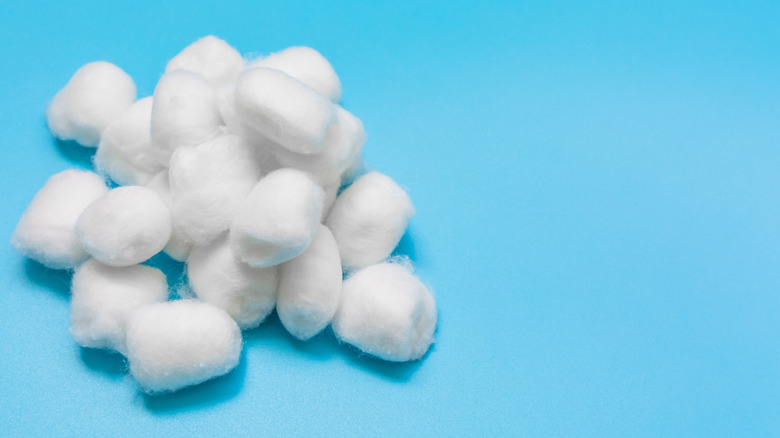Can Witch Hazel Stop Mosquito Bites From Itching?
When the weather turns warmer — and the world around us becomes green and teeming with life once again — something in the air seems to inspire a feeling of freedom in people that just isn't there when leaving the house requires an additional 12 layers of clothing. Cough cough, looking at you, winter. Rather than staying inside and feeding our vitamin D deficiency, we finally get the chance to be out – spending mornings walking in the park, afternoons laying by the pool, and evenings relaxing on the patio. But with all that time outside, we're sure to encounter some unsavory summer characters.
Try as we may to ward them off, mosquitos — with their pesky little bites – are often the price we pay for a good day spent outside. But just because a tenacious little bugger was able to slip past your defenses doesn't mean you should have to itch your way through the afterparty. Witch hazel — a botanical extract derived from the leaves, bark, and twigs of the plant after which it was named — has long been used to treat inflammatory skin conditions. But can it help put a stop to your itching after getting bit by a mosquito? Let's find out.
Why witch hazel works
Witch hazel is armed with a few medicinal properties which make it an excellent treatment option for bug bites. The leaves and bark of the witch hazel plant are chock full of tannins and polyphenols — substances that lend astringent and anti-inflammatory properties to the extract (per Dr. Axe). "When a mosquito bites you, it releases an anticoagulant that lets it feed without being detected," associate certified entomologist Bernard Buttone explained to Reader's Digest. "But your body's natural reaction to that anticoagulant is to create histamines and send them to the bitten area, which is why you itch and the bite mark swells."
When applied to a mosquito bite, witch hazel's astringent properties constrict the inflamed tissues which help to reduce swelling, according to Prevention. A 1998 study published in Dermatology also found that witch hazel had the ability to improve redness associated with skin irritation by a whopping 27%.
How to use it
Using witch hazel to help heal a mosquito bite couldn't be any easier. Healthline recommends applying a small amount of over-the-counter witch hazel to a cotton ball and blotting it directly on the bite. Some herbalists recommend mixing witch hazel with baking soda to form a paste that can be painted on the bites, ensuring that the medicine stays where it is needed (per Dr. Weil).
While using witch hazel is generally considered safe, Women's Health points out that many witch hazel products you find at the drugstore are alcohol-based. While the drying effect of the alcohol may speed up the healing process in the case of mosquito bites, it can also be irritating to people with especially sensitive skin.
If witch hazel doesn't have an irritating effect on your skin, Dr. Weil recommends taking it one step further and using witch hazel as a preventative measure against mosquito bites. Mixing one part witch hazel with one part water and adding 30 drops of essential oil (citronella, rosemary, and eucalyptus all work well), you can create a natural and effective mosquito repellent right at home!



